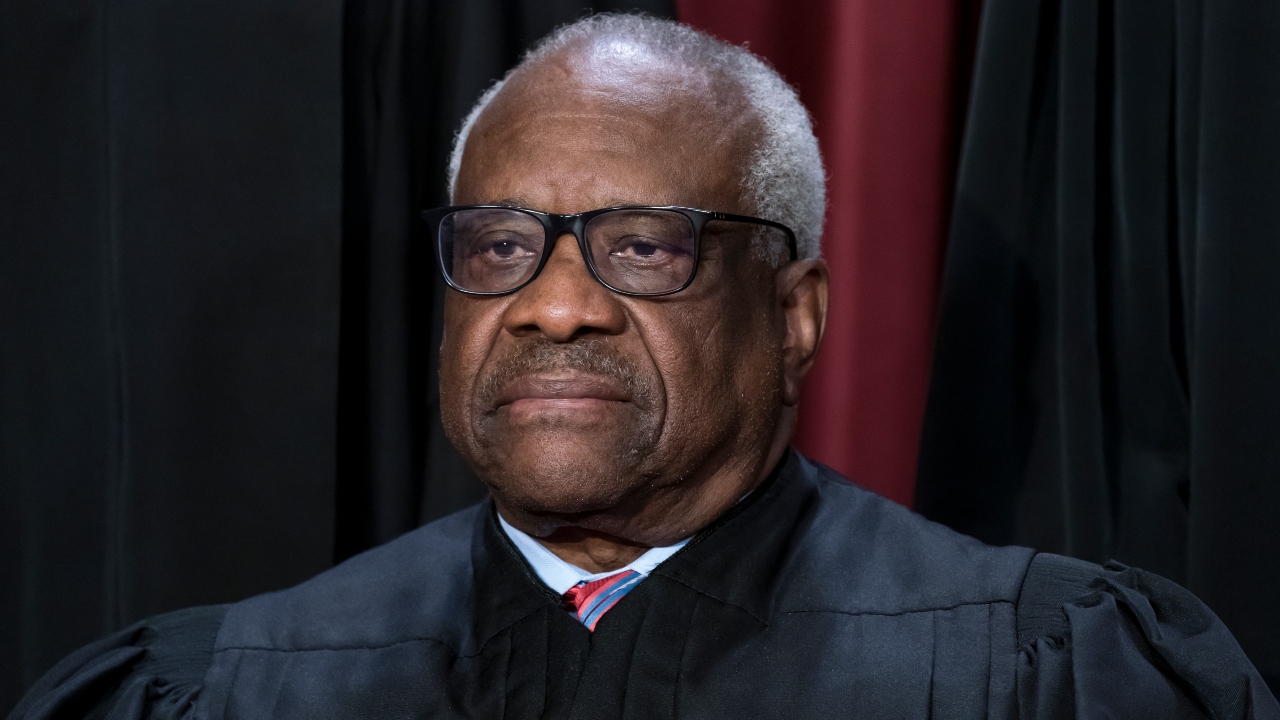U.S. Rep. Hank Johnson, D-Ga. called the code of ethics a “public relations move.”
The U.S. Supreme Court has adopted a code of ethics for the first time in history, however some critics believe the court’s ethical policy misses the mark.
U.S. Rep. Hank Johnson, D-Ga. told theGrio, the code of ethics is a “public relations move.”
“[Many] are left unsettled by what the court has adopted,” he said.
“We’re left with the same reality that was in place prior to the code of conduct,” Rep. Johnson added. “Justices are the judge and jury of their own ethics.”
The court’s code of conduct encourages justices to recuse themselves from a case if there is a conflict of interest and it suggests that justices should not speak at events that are associated with political parties or groups that have an interest in a case that the court has granted certiorari.
On the contrary, the code of conduct does not require the justices’ compliance and the code will not be reinforced if the justices cross ethical lines.
Elliot Mincberg, senior legal counsel with People for the American Way, told theGrio, “This is a very small step forward because the content of the code clearly falls short.”
“Unlike every other federal judge in the country who is subject to a code of conduct, there is no enforcement if Supreme Court justices violate the code of conduct,” he said.
“Other judges can be investigated. They can be censured. They can even be recommended for impeachment, but there is nothing at all in the Supreme Court code that makes it all enforceable,” Mincberg added.
In a statement obtained by Rep. Johnson he stated, “[the] code does not go far enough.”
He said, it does “not specifically deal with private jet travel, it does nothing to reform amicus brief abuse, and leaves the door open wide for Federalist Society junkets for select justices.”
Mincberg told theGrio, that the code of conduct is not transparent.
“One of the key issues is when judges should disqualify or recuse themselves from hearing a case,” he said.
“The code has some reasonable standards on that, but there’s no requirement that a justice explain why they’ve decided either to recuse or not recuse themselves,” he added.

For months many have called on the Supreme Court to adopt a code of ethics following revelations that justices crossed ethical lines.
ProPublica published scathing reports in recent months revealing that Chief Justice John Roberts’ wife financially benefited from helping lawyers have their cases heard before the Supreme Court. Justice Samuel Alito took a luxury fishing trip with a GOP billionaire who also had cases heard before the high court. Justice Clarence Thomas failed to disclose that he received gifts from Harlan Crow, a wealthy GOP donor, over the course of several years.
U.S. Rep. James Clyburn, D-SC, told theGrio, “People seem to feel the rules just don’t apply to them.”
“I don’t understand that you can get nominated by the president, confirmed by the Senate, you get all of your funding from Congress and you sit in the [bench] and say [Congress] doesn’t have any authority over me,” said Clyburn.
The South Carolina lawmaker was referring to Justice Alito’s stance where he inaccurately argued that Congress did not have the power to impose a code of conduct on the Supreme Court.
“I’m glad to know that they’ve decided to see that rules do apply to them. We’ll see where that goes,” said Clyburn.
Rep. Johnson told theGrio, with the adoption of an ethical code, “Justices have given themselves the green light to continue as they always have [and] I don’t think things will get better for the Supreme Court in the eyes of the public.”
Mincberg told theGrio, since the code of conduct lacks accountability, “It’s quite possible that the problems we’ve seen recently involving Justice Thomas and Alito and others may very well repeat themselves.”
Never miss a beat: Get our daily stories straight to your inbox with theGrio’s newsletter.
The post House Dem Hank Johnson says Supreme Court code of ethics falls short appeared first on TheGrio.


New Comments